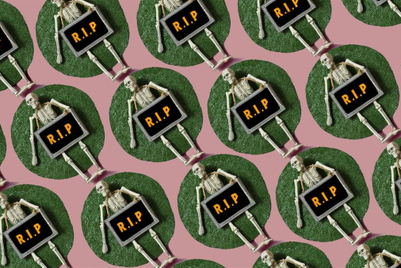
The events of the past 18 months have resulted in the talent in our industry stepping up to take on incredible challenges. They have gone the extra mile working from home, managed home-schooling and helped others around them, and carried on doing difficult, stressful work in trying circumstances.
The hard work and dedication of agency people has meant that we have been able to deliver great work and service for our clients and continue to thrive as businesses. But as we return to the office, it’s clear that agency life is taking its toll on our people.
Previously, there was a correlation between the happiness of people working on an account and the happiness of the client. A happy team produces great work. But this is changing.
The Client Relationship Consultancy (CRC) works with 1,230 agencies in 92 countries and assesses, among many things, how likely a client is to recommend its agency – The Referral Rating, or TRR for short. It also assesses how likely an agency team member would be to recommend working with their client – The Barometer.
CRC is now reporting that base-level TRR scores with clients are higher than ever and yet Barometer scores with agency employees have never been lower.
How did we find ourselves in this “people paradox”? We have to ask ourselves whether the pursuit of high levels of client satisfaction is at the cost of our people.
The Barometer data clearly indicates that our people are under pressure. Time pressure is leading to complaints from mid and junior staff, with “insufficient time”, “heavy workload” and “under-resourced” the most mentioned negative issues by agency staff. And these issues have intensified since the start of the pandemic.
However, CRC’s findings also point the way for positive change. The ability to do “innovative work” is one of the most important factors in agency employee happiness, with “opportunity to learn” alongside this.
Significantly, CRC data suggests that since the start of the pandemic “innovative work” has become a highly important driver for clients too.
As an industry, we have both a need and an opportunity to address the issues that are affecting the welfare of our people. Issues that are seeing some of best talent leaving the industry and companies struggling to attract good people.
I believe there are three key areas of focus if we are truly to invest in our talent:
Rethink what "good" means
First, we need to rethink what “good” means. As an industry, our roots have been in good, meaning quality work. Advertising quality that drives results for brands. But in recent years, all too often, good has meant quick. Speed that is that driven by brands demanding efficiency.
The need for efficiency isn’t going away, but we need to redress the balance. We need to place less focus on technology and automation and greater attention on our people. Good work – no, great work – is done by our people. Ultimately, clients buy people. It was our talent at Initiative that Bupa and NatWest bought when we won their respective businesses earlier this year.
Rethink our craft
Second, we need to rethink our craft. In the past decade the industry – particularly media – has focused on technical craft: digital, data and tech. This has been essential to meet the needs of our clients.
But now we need to shift the focus to the “communication” craft. This is about doing great work to grow brands. It’s also about agencies and clients working well together, with a clear understanding of the pressure that can be put on that partnership to deliver results.
From the CRC research, it’s clear the both clients and agencies both want more innovative work, so there is a real opportunity for greater collaboration in order to support our talent and drive innovation.
I would argue that the collaboration goes beyond innovation. Increasingly the agency-client partnership is about delivering transformation. This broadens out the communication craft for our people to focus more directly on business problem-solving, dealing with risk and uncertainty… and working in matrix structures to deliver transformative work.
So, we must focus our training on the communication and business skills that our talent need to be able to thrive in today’s and tomorrow’s marketplace. Inherent in this is a shared understanding that transformation is both a longer-term journey and an evolution.
Rethink our approach to talent
Lastly, and possibly most importantly, we must rethink our approach to talent. I believe stakeholder power is now shifting away from the agency or client to employees. More agencies are saying no to pitch opportunities in order to look after staff, and the battle for talent is getting fiercer, with spot bonuses being awarded in some instances to keep talent.
Rightly, our people are demanding fulfilling, expansive experiences at work in return for and as part of their hard work. We need to reframe our view of our people, so that we invest in talent in terms of driving industry-wide success.
Matrix teams are interdependent, so we must focus on the expansive experience of the team. This will require agencies and clients working together to set fulfilling growth goals that improve collective advancement, rather than just personal path or indeed the siloed company goal.
The changes we need to embrace with our talent require us to look both backwards and forwards. We need to re-establish what good means and reflect that in our focus on the critical craft in our business.
And in focusing on that craft, we must embrace a new collective approach to talent that recognises that our people are working inter-dependently across matrix structures to deliver against transformational goals.
We must embrace a collective, growth mindset in terms of what is required to deliver transformation and ensure that briefs turn into a fulfilling, shared programme of evolution, not a feared win-or-lose result.
James Shoreland is chief executive of Initiative UK


.jpg&h=334&w=500&q=100&v=20250320&c=1)


.png&h=334&w=500&q=100&v=20250320&c=1)




.png&h=334&w=500&q=100&v=20250320&c=1)







.png&h=268&w=401&q=100&v=20250320&c=1)
